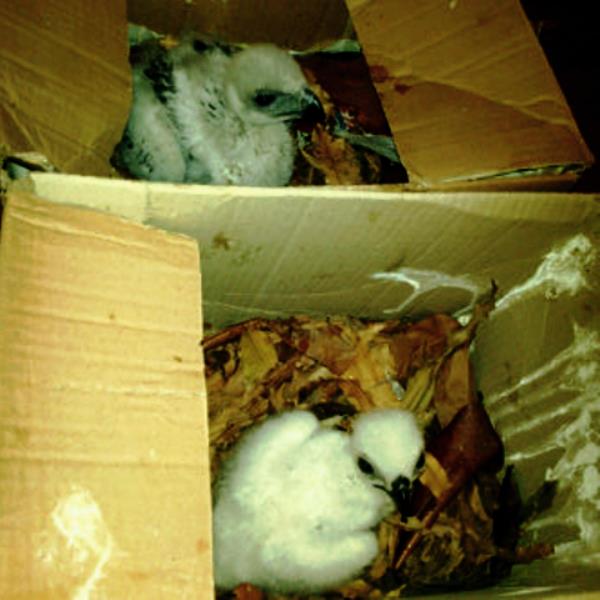Police in Indonesia’s second city of Surabaya, a hotbed of wildlife trafficking, seized 16 eagles of various types from a trafficker who was using Facebook to connect with potential customers.
A tip alerted the authorities to the trafficker. They used the Internet to confirm his activities before moving to arrest him at his house in Surabaya’s Bubutan area.
The changeable hawk-eagle (Nisaetus cirrhatus), white-bellied sea eagle (Haliaeetus leucogaster) and spotted kestrel (Falco moluccencis) were among the birds seized.
“Some animals were packed in cardboard boxes and ready to be sent by courier to the customers,” police spokesman Argo Yuwono said.

Baby eagles packed in cardboard boxes at the house of wildlife traffickers who was recently arrested. Photo: Petrus Riski
The police need residents to inform them about wildlife trafficking when they see it, according to Argo. “We have a cyber-crime unit, but we still hope for help from the community,” he said.
The animals have been sent to East Java province’s Natural Resources Conservation Agency (BKSDA).
The trafficker faces a maximum penalty of five years behind bars and a fine of Rp100 million ($7,500).
ProFauna Indoneisa chairman Rosek Nursahid said his organization would try to trafficker receives more than a minimum sentence. In June, the Surabaya District Court sentenced international wildlife trafficker Basuki Ongko Raharjo to just six months behind bars, which Rosek said was not enough.
“What we’re worried about are prosecutors and judges,” Rosek explained. “If the prosecutor demands a low sentence, the verdict is rarely higher than the demand.”
Surabaya marks the entry point for much of the wildlife that is smuggled from the relatively remote jungles of eastern Indonesia to the island of Java, where most of the country’s 250 million people reside. Wildlife seizures are a frequent occurrence at the city’s Tanjung Perak port. In May, a disembarking passenger was caught with 24 rare birds stuffed in plastic bottles.
Produced in English by Philip Jacobson.







